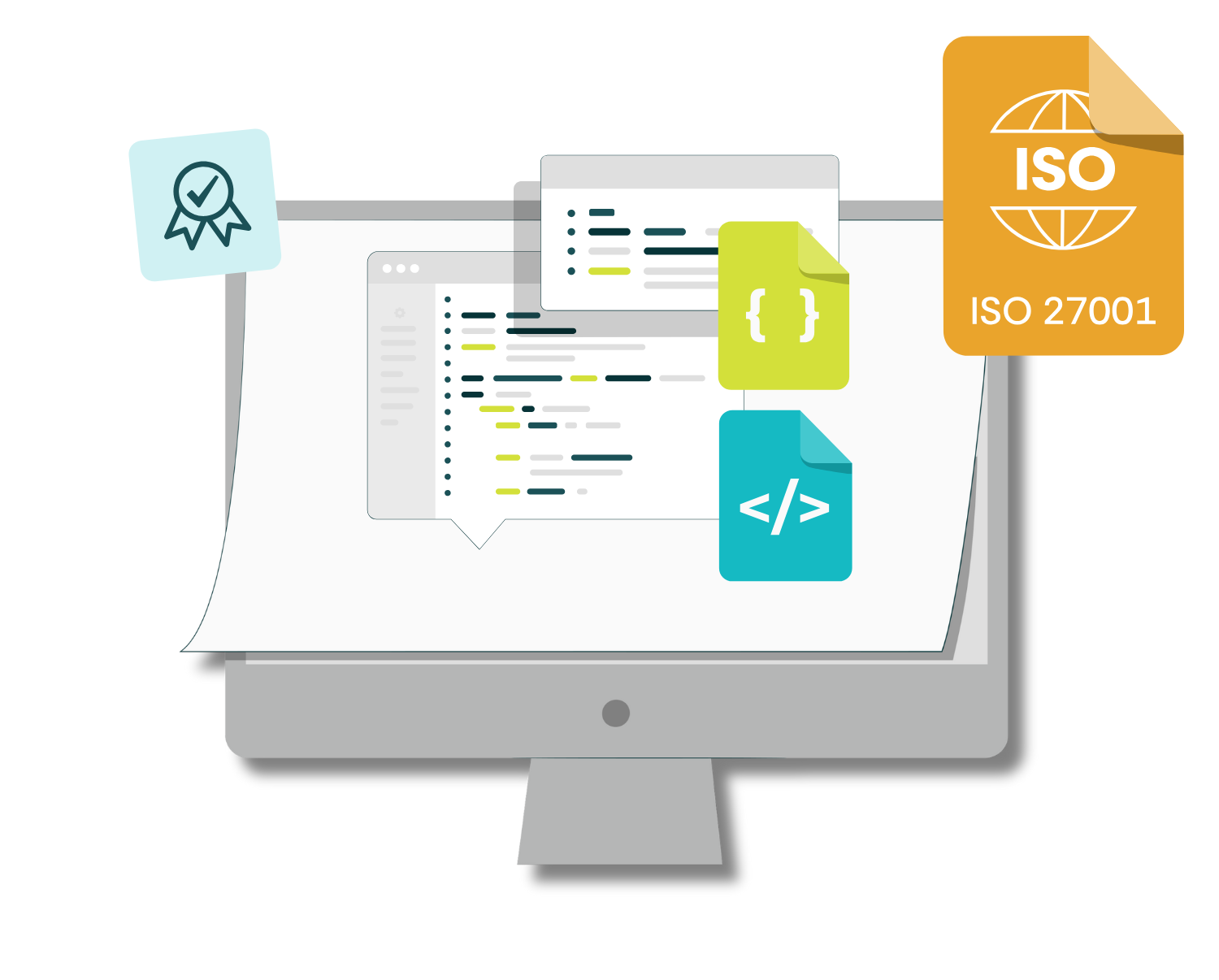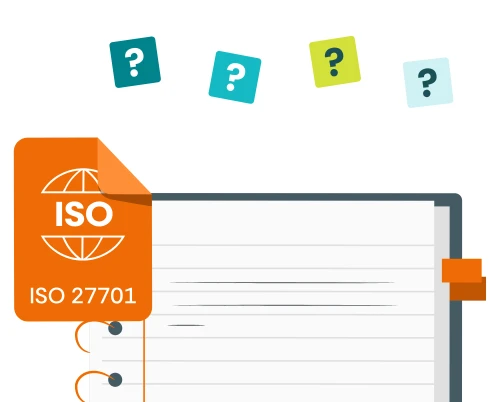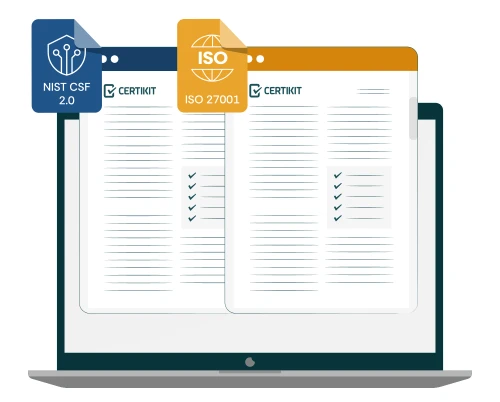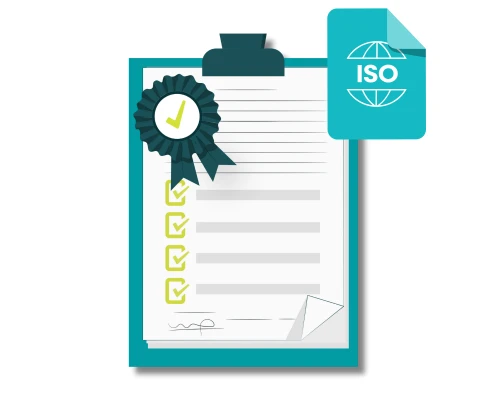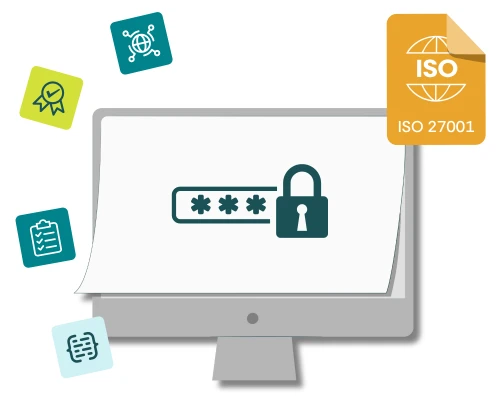If you’re running any kind of company or organisation in today’s world, cybersecurity will undoubtedly be one of the items on your agenda. The dangers of your data being hacked, phished, breached or otherwise violated are front page news in many mainstream media and business publications.
So you’re convinced you need to do something about it, but what? If only there was a framework you could use to base your defences around, one which was comprehensive and universally recognised. Enter ISO27001.
ISO27001 is the information security standard published by the International Organisation for Standardisation (ISO) and in this article we’ll list ten benefits of ISO27001 and why you should use it.
1. It provides structure to your cybersecurity defences
Cybersecurity is a fairly nebulous concept and it’s easy to get lost in firewalls, anti-virus, software patching, encryption, vulnerabilities and the hundred and one other components of it (never mind the jargon and the acronyms).
What ISO27001 gives you is a well laid out approach to the whole subject, including methods to define what your specific organisation should do, a comprehensive menu of options, and how to measure whether it’s working for you. This takes away a lot of uncertainty and puts you firmly in control.
2. It proves to others that you take cybersecurity seriously
Because it’s a well-known and respected standard, adopting ISO27001 shows to anyone you’re dealing with (such as customers, suppliers and regulators) that you’re taking a serious approach to cybersecurity and not just tinkering around the edges.
Certifying your organisation against the standard sends a message that you’re a professional organisation that looks after their data.
3. It may give you a competitive advantage
In markets where differentiating yourself is hard, ISO27001 certification can provide you with an advantage over the uncertified competition, giving customers one more reason to buy from you. Knowing that someone will be looking after your data with due care is never seen as a bad thing in any industry.
4. ISO27001 is internationally recognised
If you do business internationally, there’s no need to look at country-specific options for cybersecurity, as ISO27001 is recognised around the world as the gold standard. This means that wherever you operate geographically, your desire and commitment to protecting your infrastructure and your customers’ and suppliers’ data is clear.
5. You can save time on tenders
We’ve all had to spend time answering those endless cybersecurity questions on tender documents for large bids; many of these can be addressed at a stroke by stating that your organisation holds ISO27001 certification, and providing some relevant proof such as certificates and audit reports. And for some bids, certification may be a necessary starter to get onto the potential supplier list in the first place.
6. Risk assessment allows you to tailor your defences
There’s little point in implementing cybersecurity controls that are not relevant to your setup or don’t provide an appropriate return on your investment. By assessing your risks as part of your ISO27001 information security management system (ISMS), you effectively tailor your defences to address those areas of specific relevance to your organisation, so avoiding wasting money on controls that don’t deliver.
7. ISO27001 covers the subject – comprehensively
When it comes to addressing the particular risks you are most concerned about, ISO27001 provides a comprehensive list of controls to choose from. These aren’t just technical in nature; they also cover the softer aspects of cybersecurity such as people and processes, so that no important aspect is forgotten.
8. You are encouraged to continually improve your controls
Things change fast in cybersecurity, so a control that was good enough a few months ago may no longer be effective. That’s why the ISO27001 standard encourages continual improvement across the board to keep pace with the changing threat landscape.
9. It keeps your eye on the ball
Cybersecurity is certainly not a one-time exercise. But with all the other things going on, sometimes it doesn’t get the focus it needs to stay effective. The ISO27001 standard includes the requirement to have regular internal audits to check that everything is still happening. And the external surveillance audits also help to keep things focussed.
10. ISO27001 can be a route to other standards
Although you started with ISO27001, it could be that your organisation would benefit from certification to one of the other standards that ISO offers, such as ISO9001 (quality), ISO14001 (environmental) or ISO45001 (occupational health and safety).
The good news is that the management system that you put in place for ISO27001 is easily extendable to cover these other areas too, and the wording of the standards will look very familiar, thus shortening timescales and reducing cost.
In conclusion
There you have ten benefits of ISO27001. Hopefully you can see that becoming certified to the ISO27001 standard is a great idea for any organisation and that the benefits really do make it worthwhile. For those wondering how to grasp the nettle that is cybersecurity, I hope we’ve provided a clear explanation of why ISO27001 is an option well worth considering.

